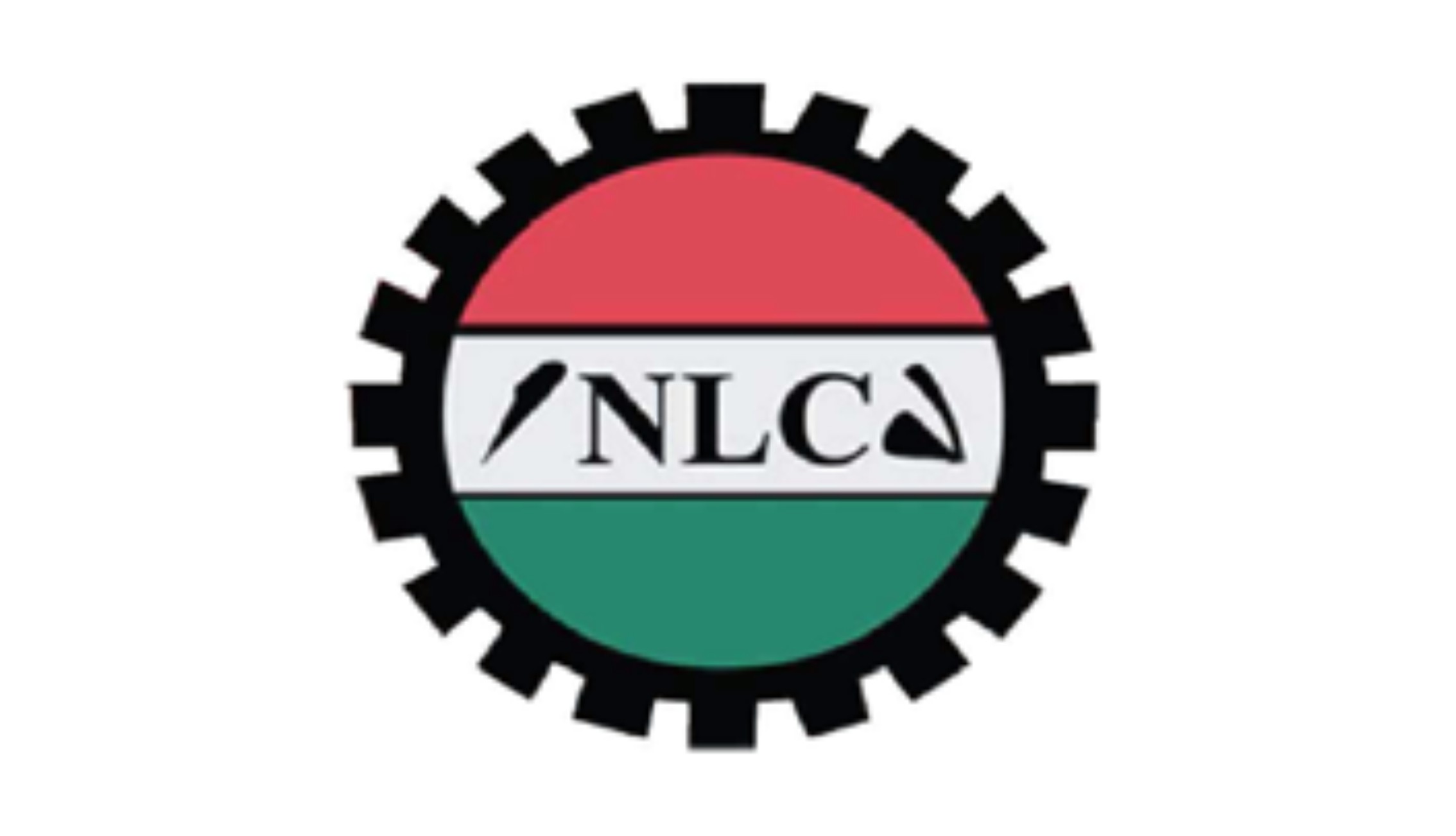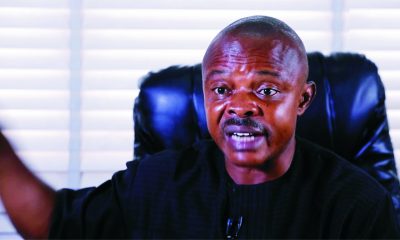Business
A Case For PH International Market
Trading in various goods is one business in which most Nigerians are engaged, especially in the urban centres like Kano, Lagos, Aba, Ibadan and Onitsha among others, which host markets of various sizes to accommodate the teeming army of traders. In these trying times, trading, a free enterprise which could be embarked upon by anyone who has some capital and is not afraid of competition, is so pervasive, no thanks to the high rate of unemployment in the land. This accounts for the high number of traders of every hue, to the extent that among their ranks are graduates of various disciplines from our tertiary institutions who have become traders as a way of keeping body and soul together. However, the dispersal of markets around Port Harcourt where street trading is rife, following the reconstruction of the Rumuwoji Market or (Mile One Market) and the ultra modern township market in the old Port Harcourt Township by the Rivers State government, has for sometime now constituted a problem to town planners and environmentalists.
As a result, traders on assorted goods, fabrics, electronics, building materials, motor spare parts and vehicles, have taken over every available space and some residential areas in Port Harcourt, thus prompting calls for an international market that would accomodate a vast majority of the traders. It is noteworthy that apart from defacing the city by converting every street corner or available space into a market place, the activities of traders have contributed to the high tenancy rate of residential houses whose landlords prefer traders or shop owners who may pay higher rent. This development which did not go down well with the state government prompted its intervention in the building of the modern Rumuwoji market in Diobu area after the old make-shift market was razed by fire, while reconstruction work is ongoing at the ultra modern Port Harcourt township market along Creek Road, which was allegedly torched by unidentified elements.
However, since the completion of the first phase of the mile one market the authorities seem to have problems allocating the stalls to traders for want of an agreeable allocation formula among stakeholders. Some of the disagreements, sources say, include proper identification of traders who were displaced to give way for the new edifice, identification of new and genuine stall seekers, accommodation of the interests of the “sons- of -the-soil”, rate changeable for the stalls, the interests of other stakeholders, among others.
The Rivers State government has, no doubt, spent a huge sum of money in building this modern market, not for the purpose of enhancing the landscape of Rumuwoji community, but for the purpose of providing a platform for the citizenry to participate in the economic activities available to them. Besides, the market is expected to generate revenue for the government to help it develop the second phase. Thus, leaving the market fallow for longer than is necessary would not be in the best interest of the people and the government that needs money to develop the second phase. Mindful of this need to clear whatever clogs that are militating against just and fair allocation of the stalls, the state governor, Rt. Hon. Chibuike Rotimi Amaechi recently accepted to meet with the parties with a view to resolving the issues. It is therefore expected that during the meeting which would have the Allocation Committee Members, representative of traders and government in attendance all the knotty issues blocking the allocation of the stalls so far, should be settled. This move would boost economic activities in the state as more converts would become traders as a way of checking unemployment.
It is pertinent at this juncture to note that in allocating the stalls, the interests of those misplaced therefrom should be accorded some significance, even as the stalls may not be let below current market value. Granted that some indigent traders would be affected by this requirement, the need to form co-operatives so as to pool their resources together to meet government demand would make some sense. It should also be instructive to guard against allocating stalls to non-traders whose main interest would be to get the stalls either through community patronage or by government allocation, only to sublet them to real traders at very exhorbitant rates. This practice should be discouraged, because it works against government intention of improving the economic well-being of its citizens. Besides, such move eventually contributes to the high cost of goods as the traders must pass on the incidence of high cost of stalls to buyers.
When the second phase of the market is done with government should as a matter of urgency consider the building of an ultra modern international market in the state to raise economic activities to another level.
Apart from being a money spinner for government the international market has the potential to mop up motor car dealers, car spare parts dealers, dealers on building materials and assorted electronic goods now occupying residential buildings. In addition to forcing down the high cost of accommodation in Port Harcourt, moving certain categories of traders to the international market would help us realise more fully our dream of a Greater Port Harcourt City where change which everyone could see is being unravelled.
Business
TTP Trains Customs Agents, Freight Forwarders On Eto App
In a concerted effort to tackle racketeering and reduce inflated transportation costs in the Nigeria’s seaports, Trucks Transit Parks Ltd. (TTP) has trained Licensed Customs Agents and Freight Forwarders on the use of its Ètò electronic call-up system.
The training was held recently at Customs Processing Centre (CPC) Auditorium, Apapa, Lagos, in collaboration with the Nigeria Customs Service (NCS) and supported by the leadership of the Joint Association of Licensed Customs Agents and Freight Forwarders (JALCAFF), Apapa Command.
Speaking at the event, Comptroller Babatunde Olomu expressed appreciation to TTP for facilitating the training and emphasized the need for customs agents to take personal ownership of the Ètò booking process.
“I want to thank TTP for this impactful training. I encourage all customs agents to begin doing their own bookings directly. By doing so, they can take back power from the unscrupulous elements exploiting their lack of knowledge, selling tickets at highly inflated prices,” Olomu declared.
He noted that empowering agents with hands-on training was key to dismantling racketeering networks that have plagued access to the ports and frustrated efficient logistics processes.
Also speaking, the Chairman, Apapa Chapter of the Association of Nigerian Licensed Customs Agents (ANLCA), Chief Emeka Chukwumalu, said the engagement was critical to the ongoing push to reduce cargo transportation costs and ease business operations at the Apapa Port.
According to a freight forwarder, “The training is basically for us to have awareness of the operations of the Ètò call-up system through TTP. We also want to brainstorm on ways to reduce the high cost of cargo transportation in Apapa Port.
“This training opened our eyes to how simple it is to book tickets ourselves. We now know the right steps to follow and how to avoid falling victim to fraudsters.”
Earlier, Head of Operations at TTP, Mr. Irabor Akonoman, talked on common misconceptions about ticket pricing, reaffirming that the cost of Ètò bookings had remained consistent since its inception.
“The official price remains the same since inception. What people are paying higher amounts for is the manipulation by racketeers”.
Business
NECA Holds MSME Fair To Drive Growth
Towards strengthening small businesses and promoting a more supportive regulatory environment, the Nigeria Employers’ Consultative Association (NECA) says it will hold the 2025 edition of its flagship MSMEs Fair on Tuesday (May 6, 2025).
The event, themed, “Galvanising MSMEs for Economic Growth and Stability”, will take place at NECA House in Lagos.
According to NECA’s Director-General, Mr Adewale Smatt Oyerinde, the fair seeks to provide micro, small, and medium enterprises with essential tools, resources, and strategic networks to thrive in Nigeria’s challenging business climate.
He emphasised the vital role MSMEs play in national development, describing them as the “lifeblood of Nigeria’s economy.”
Oyerinde noted that the fair is designed to offer entrepreneurs practical solutions to navigate economic uncertainties, regulatory hurdles, and business scalability issues.
A major attraction of this year’s event is the keynote address by the CEO of FATE Foundation, Mrs. Adenike Adeyemi, a prominent advocate for MSME development.
She is expected to share transformative insights on innovative strategies for sustaining and growing small businesses in Nigeria.
A unique feature of the fair will be interactive sessions with key regulatory bodies. Entrepreneurs will engage directly with agencies responsible for licensing, compliance, taxation, and business registration.
NECA said these sessions aim to demystify bureaucratic processes and foster a more enabling business environment.
It also said the fair will provide a platform for entrepreneurs to exhibit their products and services, connect with potential investors, and explore new markets.
It added that participants would gain critical knowledge on digital transformation, access to finance, and strategies for sustainable business growth.
·
· NECA stressed that the fair aligns with its broader mission of promoting enterprise development and economic resilience.
·
· “By empowering MSMEs with the right support and information, the organisation aims to stimulate job creation, innovation, and long-term economic stability”, NECA said.
·
· The 2025 MSMEs Fair is expected to attract a wide range of stakeholders, including financiers, tech experts, regulators, and industry leaders, all united in advancing the growth of Nigeria’s MSME sector.
Business
Over 2m Passengers Board Blue Rail Train – Commissioner
The Lagos State Commissioner for Transport, Mr Oluwaseun Osiyemi, says over two million passengers have been transported on the Blue Line Rail since its launch, while state-run buses move an average of 42,000 commuters daily.
Osiyemi, who disclosed this during the Year 2025 Ministerial press briefing held at the Bagauda Kaltho Press Centre, Alausa, on Tuesday, noted that the Lagos State Transport Policy, launched in May 2024, was now in its implementation phase, focusing on inclusivity, safety, affordability, and sustainability.
“On rail development, Phase One of the Blue Line (Marina to Mile 2) has served over two million passengers, with Phase Two (Mile 2 to Okokomaiko) in progress.
“Phase One of the Red Line (Agbado to Oyingbo) is now operational with eight stations and additional rolling stocks procured, while Phase two (Oyingbo to link Blue Line at National Theatre) is underway”, he said.
The Commissioner said in the state-owned bus operations, over 60 million commuters have been served since 2019, with daily ridership exceeding 40,000.
He also said plans were on to deploy new buses with Quality Bus Corridors under construction, adding that the Abule=Egba Bus Terminal had also been commissioned.
“For water transport, 15 locally-built Omibus Ferries have been launched and are in operation, with the Ijegun Egba Terminal now open.
“The OMI EKO project, in partnership with the French Development Agency (AFD), will deliver 25 terminals and 78 electric ferries.
“Over 280,000 passengers have used ferry services in the past year, and 12 boats have been upgraded to meet safety standards”, he said.
On road infrastructure and traffic management, the Commissioner said 49 junction improvement projects had been completed, including ongoing ones at Ikorodu, Iju, as well as Allen-Opebi-Toyin axis.
He added that solar-powered Traffic Signal Lights, road markings covering 67.9km, new medians, laybys, and 3,941 parking lots had also been provided.
Additionally, Osiyemi announced that the deployed Automatic Number Plate Recognition cameras had detected over 470,000 traffic violations and that the Vehicle Inspection Service issued over one million roadworthiness certificates.
He also said that the Lagos State Drivers’ Institute trained more than 32,000 drivers in the past 13 months.
The event marked the second anniversary of Governor Babajide Sanwo-Olu’s second term, showcasing major strides in the transport sector under the THEMES+ agenda.
Nkpemenyie Mcdominic, Lagos
-

 Featured5 days ago
Featured5 days agoLabour Unions In Rivers Call For Improved Standard Living For Workers
-

 News5 days ago
News5 days agoNBA President Sues For Workers’ Protection, Better Wage
-

 News5 days ago
News5 days agoAdeleke Approves N4bn Bond To Clear Pension Arrears
-

 News5 days ago
News5 days agoNDDC Seeks UN’s Support To Accelerate Niger Delta Development
-

 News5 days ago
News5 days ago2025 UTME: JAMB Disowns Site Requesting Payment From Candidates
-

 News5 days ago
News5 days agoMay Day: Labour Seeks Inclusiveness In Policy-making
-

 Niger Delta5 days ago
Niger Delta5 days agoRivers Begins, Supplemental Polio Vaccination, Morrow
-

 Featured5 days ago
Featured5 days agoRSG Commits To Workers’ Welfare …. Calls For Sustained Govt, Labour Partnership

